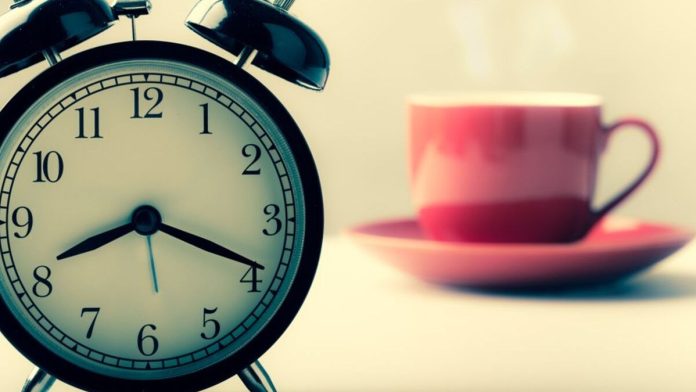Coffee, the elixir of life for many, is often the first thing we reach for in the morning. But is that truly the optimal time to indulge in a cup of joe?
Let’s embark on a journey to uncover the best times to drink coffee, backed by science and expert opinions.
Understanding Our Body’s Natural Rhythms
Our body operates on a circadian rhythm, a natural internal process that regulates our sleep-wake cycle. One of the hormones that plays a crucial role in this rhythm is cortisol.
According to LoveToKnow, cortisol is responsible for making us feel alert. Typically, our cortisol levels peak 30 to 45 minutes after waking up. Drinking coffee during this peak might not be the most effective, as the caffeine’s impact could be diminished by the already elevated cortisol.
As stated by Healthline, consuming coffee right after waking might not be the best idea. Instead, waiting until mid-morning, when cortisol levels dip, can offer a more pronounced caffeine kick.
Morning Coffee: A Ritual or a Necessity?
For many, the act of drinking coffee transcends its physiological effects. As expressed by Coffee Affection, the experience of sipping coffee can be spiritual. Whether it’s the serenity of a sunrise coffee on the patio or the camaraderie of a late-night chat over a brew, the “best” time often intertwines with personal moments of peace and connection.
However, if you’re reaching for that morning cup hoping for a caffeine boost, you might be slightly off the mark. With over 150 million coffee drinkers in the U.S., many might not be optimizing their caffeine intake. Drinking coffee first thing in the morning, when cortisol levels are high, might not provide the expected lift.
The Afternoon Slump and Coffee
Feeling that post-lunch lethargy? The afternoon might be another optimal time for a coffee break. As mentioned in Livestrong, our cortisol levels naturally dip in the afternoon.
This makes it a prime time for a caffeine boost, especially between 2 pm and 5 pm. However, be cautious about consuming coffee too late in the day, as it might interfere with sleep.
Coffee and Workouts
For those who rely on a pre-workout boost, coffee might be your best friend. Consuming coffee 30 to 60 minutes before a workout can enhance performance, improve focus, and reduce the perception of pain, as referenced by Greatist.
Coffee’s Impact on Sleep
While coffee can be a delightful pick-me-up during the day, its consumption too close to bedtime can be a recipe for a restless night.
Caffeine, the primary stimulant in coffee, can remain in our system for several hours. As reported by Livestrong, the stimulating effects of caffeine can last anywhere from 3 to 5 hours, with some of it lingering in the body even longer.
For those sensitive to caffeine, it’s advisable to avoid it at least 6 hours before hitting the sack. This ensures that the caffeine has ample time to wear off, allowing for a peaceful night’s sleep.
The Health Benefits of Coffee
Beyond its energizing properties, coffee has been linked to a plethora of health benefits. According to Greatist, coffee consumption has been associated with improved focus, reduced inflammation, increased longevity, and even enhanced heart health.
The antioxidants found in coffee, particularly polyphenols, play a significant role in these benefits. Light and medium roasts tend to have higher polyphenol content, making them potentially more beneficial.
However, it’s essential to note that while coffee can offer numerous health advantages, excessive consumption can lead to issues like anxiety, insomnia, and elevated cortisol levels. Moderation is key.
Decaf: An Alternative Worth Considering
For those sensitive to caffeine or looking to enjoy a cup later in the day without the jitters, decaffeinated coffee is a worthy alternative. As mentioned by Coffee Affection, while decaf does contain some caffeine, its levels are significantly lower, making it a gentler option for many.
Personalizing Your Coffee Experience
While scientific research offers valuable insights into optimizing caffeine intake, personal experiences and preferences should not be overlooked. Everyone’s body reacts differently to caffeine, and what works for one person might not work for another. It’s essential to listen to your body and adjust your coffee consumption accordingly.
For instance, if you find that your morning coffee leaves you jittery, consider reducing the amount or switching to a milder roast. On the other hand, if you feel that your afternoon cup gives you the perfect boost without affecting your sleep, continue to enjoy it.

